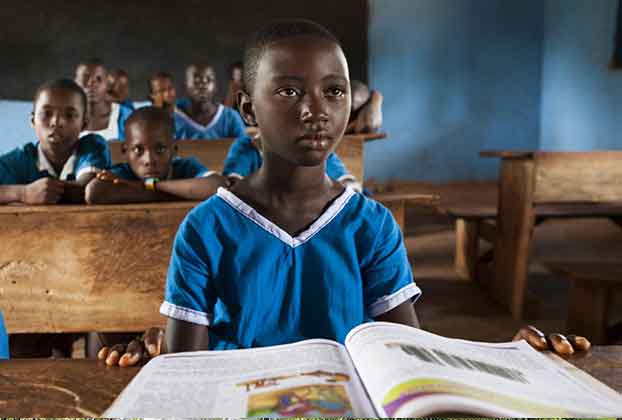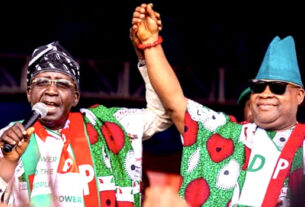VICTORIA OJUGBANA, LAGOS
Nigerian government at all levels have been tasked to show interest in education and carry out authentic reforms that will promote good education in all the schools, particularly at the primary level.
Prof. Chijioke Uwasomba of the Faculty of Arts, Department of English Language, Obafemi Awolowo University, Ile-Ife, Osun State, gave the charge at the Public Presentation of Research Report, titled: “In Lieu of Excellence, The State of Public Primary In Education in Lagos State,” organized by Maroon Square, a not-for-profit group, which objectives which include promotion and protection of human and democratic rights of all living in Nigeria.
Speaking on the topic: “Public Education Finance in Nigeria: Globalisation and Underdevelopment,” at the event held in Lagos at the weekend, Prof. Uwasomba
lamented that all the reforms carried out so far by various administrations in Nigeria have not addressed the yearnings of the education sector.
He noted that the theme of the event was “extremely apt because our education sector is going through a crisis of immense proportion at the primary, secondary and tertiary levels. All aspects of our education sectors are in shambles and for this programme to have focused on primary school is so important because the primary school is the foundation.
“If we get it right at this level, then, there is hope for some better things to come. The situation in the primary schools is terrible.”
Noting that Nigerian leaders have missed it from the foundation, which is the primary school level, Uwasomba said: “Nigerian leaders are not serious and they are not helpful. Most of the Nigerian leaders are corrupt. So, they don’t care about the future of the citizens. The future is bleak and that is why I thought the organizers of this event were very thoughtful to have held this programme. Let’s see if we can nudge the government, and the society to respond to the needs or the challenges of the primary school system.”
The university don urged the government to “ensure that there is equal access to education at all levels, as well as free and compulsory primary, secondary and adult literacy education.”
At the event, Executive Director, Maroon Square, Onyeisi Chiemeke, while corroborating Prof. Uwasomba, said that it is criminal for the government not to fund public primary education. “They should desist from their criminality and invest resources in this level,” he added.
Arguing that education at the public primary school level should be free for everybody, Chiemeke noted that “There is no evidence that the private schools in that primary category have better resource persons than the public schools. The government should invest in this area for the health of the children and residents of the state.”
Noting that the whole idea of the event is to discuss developmental objectives, Chiemeke added that “education is a key factor to wherever you want to go.”
He stated that from Maroon Square’s research, it was discovered that “the number of public primary schools in Lagos State is less than 1,100. With that discovery, you can then plot your own chart to say that if you use the 20 local governments, which means that you may have about 50 in each local government area. This to us is not adequate because it affects our sensibility.”
Lamenting that the government is not putting enough funding in the primary education sector, Chiemeke said: “If you look at the title, it, therefore, means that the government is not investing much in that area. Our research shows that the government has not invested as much as it should. The government has missed it at the primary school level.”
While decrying the negative effect of globalization in the underdevelopment of the country, Prof. Uwasomba said: “Globalization did not come from us. It came from outside. The point I was making is that capitalism undergoes processes. It is not constant. If there are challenges today, capitalism will degenerate into something else. Globalization did not start now. It started when the Whites came to Africa and many other places to colonise the people.
“The era of colonialism is gone, so imperialism has a way of developing itself and making sure that it is relevant. Globalization is something that has come from outside, with the impression that it is for everybody.
“In the process of globalization, you find that we lose our culture, we lose our initiative, and we lose our creativity and our development.
“Some of the things that globalization brought influence us negatively and so, for us to have development, we need to start the initiative from our own end, to have a development that is authentic.”




